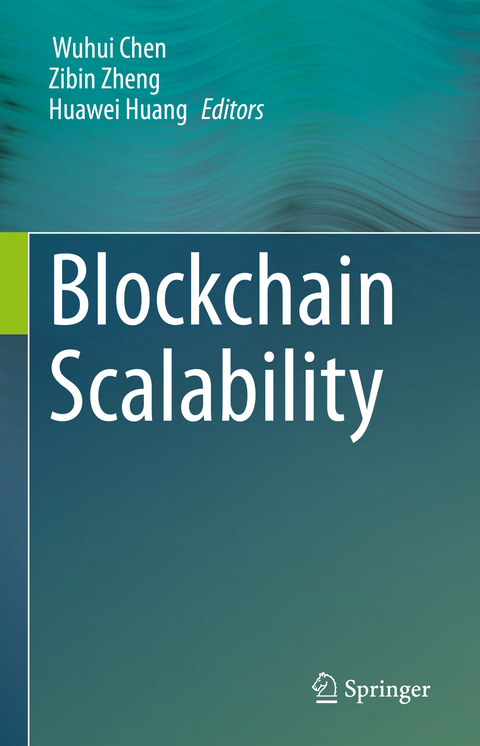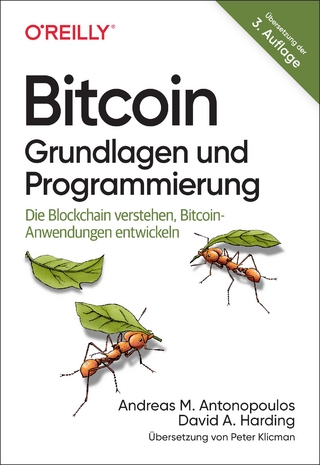
Blockchain Scalability
Springer Verlag, Singapore
978-981-99-1058-8 (ISBN)
Despite blockchain’s merits of decentralization, immutability, non-repudiation, and traceability, the current blockchain has faced a serious scalability bottleneck. The scalability bottleneck problem is mainly manifested in two aspects: low-performance efficiency and difficulty in functional extension. First, the security and reliability of the blockchain system come from the fact that most nodes of the whole network participate in a distributed consensus to maintain the ledger. The high-cost consensus mechanism makes limited performance of blockchain, and there isa big gap between the actual large-scale application system. In addition, in order to ensure the security of a single blockchain system, data between different blockchain systems are relatively isolated, making it difficult for assets and data to interact.
This book explores the scalability of blockchain in depth, proposes meaningful approaches to the problems mentioned above, and builds an original theoretical system of blockchain scalability. It describes the root of blockchain scalability problems, mainstream blockchain performance, the classification of existing scalability problem solutions, and some exciting sharding-based approaches. It also includes open issues and future directions to scale blockchain for complex practical application scenarios. As such, this book will be a valuable resource for students, researchers, engineers, and policymakers working in various areas related to blockchain scalability, which is also of great significance for understanding and solving the bottleneck of blockchain scalability and realizing the practical large-scale commercial application of blockchain.
Wuhui Chen (Member, IEEE) received bachelor’s degree from Northeast University, Shenyang, China, in 2008, and master’s and PhD degrees from the University of Aizu, Aizu–Wakamatsu, Japan, in 2011 and 2014, respectively. From 2014 to 2016, he was a research fellow with the Japan Society for the Promotion of Science, Japan. From 2016 to 2017, he was a researcher with the University of Aizu. He is currently an associate professor at Sun Yat-Sen University, Guangzhou, China. His research interests include blockchain system, service computing, and system for machine learning. Zibin Zheng (Fellow, IEEE) is Professor and Deputy Dean of the School of Software Engineering, Sun Yat-sen University, China. He published over 200 international journal and conference papers. According to Google Scholar, his papers have more than 26,000 citations. His research interests include blockchain, software engineering, and services computing. He was a recipient of several awards, including the IEEE TCSVC Rising Star Award, IEEE Open Software Award, Top 50 Influential Papers in Blockchain, the ACM SIGSOFT Distinguished Paper Award of ICSE, and the Best Student Paper Award at ICWS. Huawei Huang (Senior Member, IEEE) earned his PhD degree in Computer Science and Engineering from the University of Aizu, Japan, in 2016. He is currently an associate professor at Sun Yat-Sen University, China. His research interests include blockchains and distributed computing. He has served as a research fellow of JSPS, a visiting scholar with Hong Kong Polytechnic University, and a program-specific assistant professor with Kyoto University, Japan. He has served as a lead guest editor of a special issue on blockchain at IEEE Journal of Selected Areas in Communications (JSAC).
Chapter 1. Blockchain Scalability Fundamentals.- Chapter 2. Overview to Blockchain Scalability Challenges and Solutions.- Chapter 3. On-Chain and Off-Chain Scalability Techniques.- Chapter 4. Layered Sharding on Open Blockchain.- Chapter 5. Sharding-Based Scalable Consortium Blockchain.- Chapter 6. State Sharding for Permissioned Blockchain.- Chapter 7. Elastic Resource Allocation in Sharding-Based Blockchains.- Chapter 8. Dynamic Sharding: A Trade-OFF Between Security and Scalability.- Chapter 9. A Scalable and Secure Framework for 5G Networks Applications
| Erscheinungsdatum | 29.06.2023 |
|---|---|
| Zusatzinfo | 1 Illustrations, black and white; IX, 240 p. 1 illus. |
| Verlagsort | Singapore |
| Sprache | englisch |
| Maße | 155 x 235 mm |
| Themenwelt | Mathematik / Informatik ► Informatik ► Datenbanken |
| Informatik ► Netzwerke ► Sicherheit / Firewall | |
| Informatik ► Theorie / Studium ► Kryptologie | |
| Schlagworte | Blockchain • Blockchain Scalability • Consensus • Distributed Execution • Large-Scale Applications • On-Chain and Off-Chain • Sharding |
| ISBN-10 | 981-99-1058-7 / 9819910587 |
| ISBN-13 | 978-981-99-1058-8 / 9789819910588 |
| Zustand | Neuware |
| Informationen gemäß Produktsicherheitsverordnung (GPSR) | |
| Haben Sie eine Frage zum Produkt? |
aus dem Bereich


